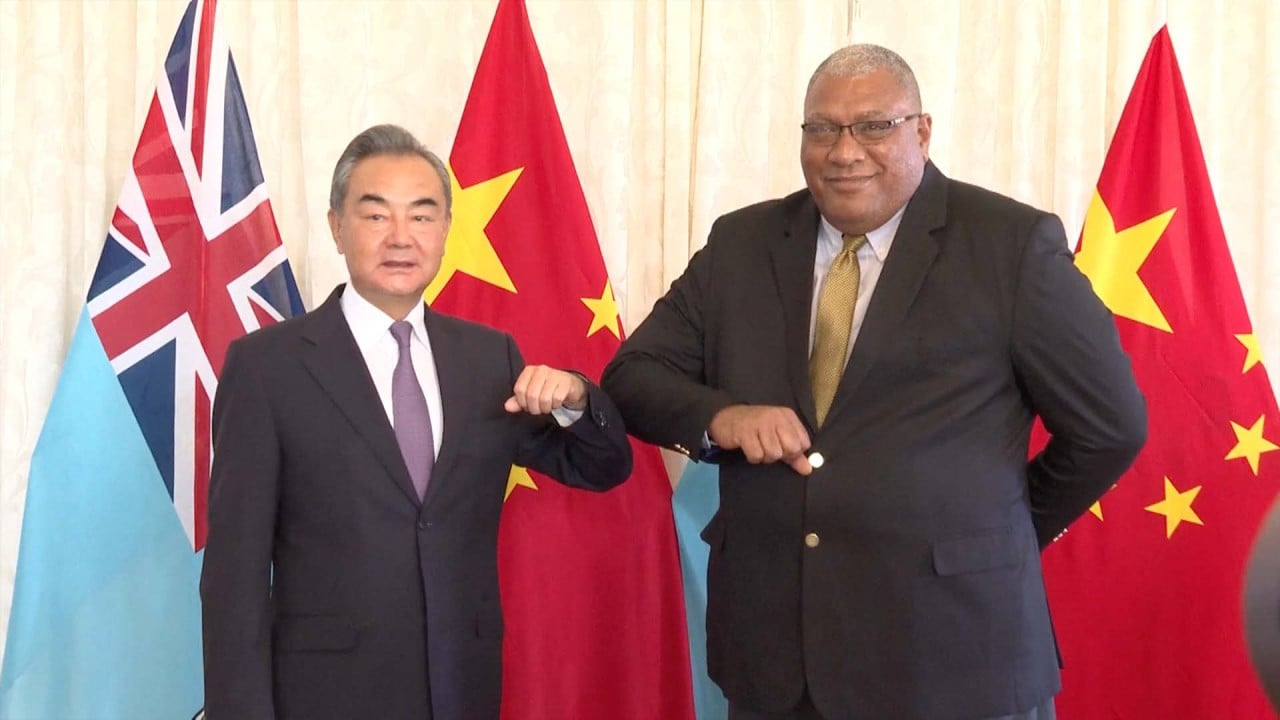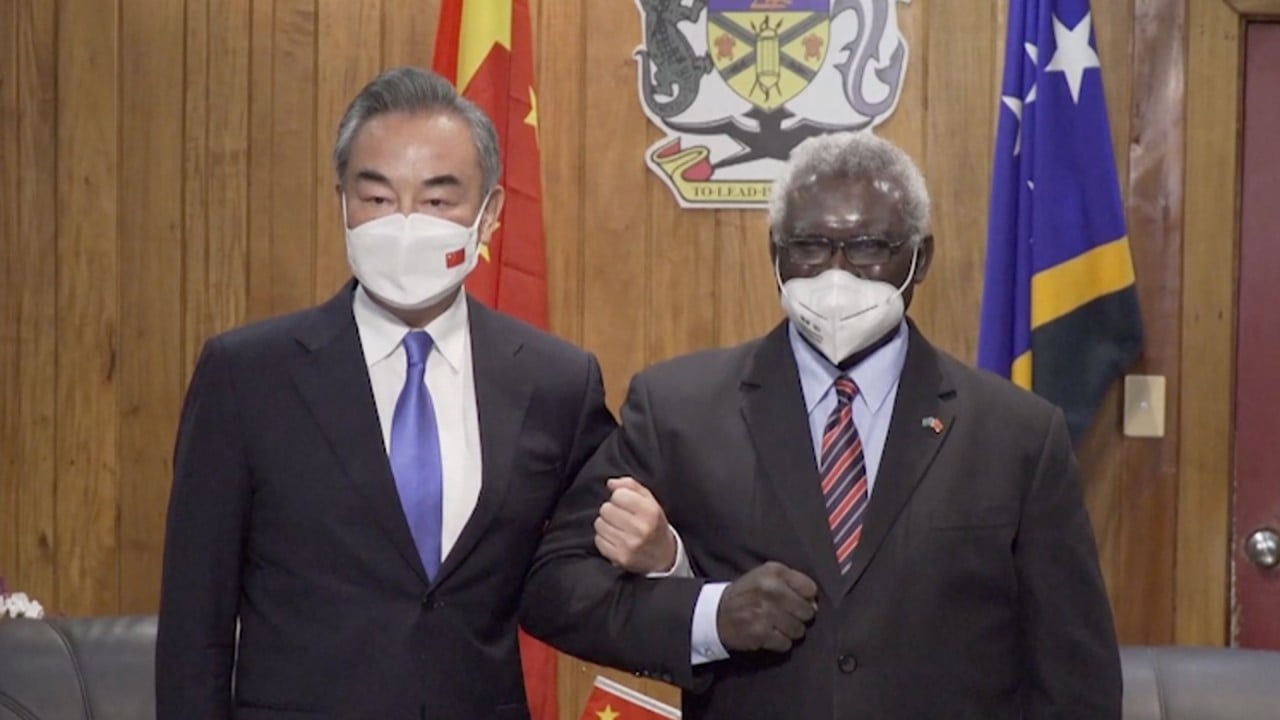
Don’t turn South Pacific into US-China geopolitical ‘boxing ring’, Beijing says
- Senior foreign ministry official says China’s cooperation in the region has resulted in real benefits for its Pacific partners
- US and its allies have long neglected the island nations, he says
“They praised China from the bottom of their hearts as a good partner and true friend, promised to adhere to the one-China principle, and firmly believed that developing relations with China would help them stand on the right side of history,” he said.
Xie said cooperation with China had realised solid benefits for the region, from poverty reduction and climate change to infrastructure and agricultural development.
According to Xie, Beijing’s security cooperation with Honiara was at the Pacific nation’s request.
“The purpose is to help maintain social order and protect the safety of Chinese citizens and institutions in Solomon Islands … [China’s cooperation with the South Pacific nations] can stand the test of time and history,” he said.
He accused Washington and its allies of having long neglected the region and using the Pacific island nations as “pawns in geopolitical competition”.
“[China’s actions are] in stark contrast to the long-term neglect of some other countries, the use of island countries as raw material suppliers, commodity dumping grounds, nuclear waste dumping grounds, and frontier island chain bases,” he said.
“The South Pacific region should be a big stage for all parties to carry out cooperation, not a boxing ring for zero-sum games.”
US Secretary of State Antony Blinken also flagged China’s diplomatic manoeuvring in the South Pacific in his China policy speech last month.
But according to Zhu Feng, an expert on international affairs at Nanjing University, Wang’s South Pacific trip was not aimed at the US, despite the deepening of the US-China feud.
“His visit was to demonstrate that China’s aspiration for good ties with the region is quite normal and Beijing has no intention to take substantial steps to fuel regional tensions. Rather, it should be seen as part of Beijing’s efforts to clarify its regional policy,” Zhu said.
Wang’s diplomatic setback on the regional security and trade pact did not stop Beijing from kicking-start the police training programme in Solomon Islands.
According to Bloomberg, the training took place on June 7-11 at the headquarters of the Royal Solomon Islands Police Force and included self-defence and counterattack drills as well as basic survival skills.
Although Solomon Islands has said it will not host Chinese military bases, which Canberra called “a red line”, the US, Australia, New Zealand and Japan have voiced concerns about China’s possible military presence in the region.
Xie was more strident in April, when commenting on the Western criticism of China’s efforts to strengthen ties with the region.
“What rights do these countries have to make unwarranted comments on China and Solomon Islands? How is Australia in any position to draw a ‘red line’ between Solomon Islands 2,000km away and China 10,000 miles away?” the foreign ministry quoted him as saying.
But Shi Yinhong, a US expert at Beijing’s Renmin University, voiced concerns about the growing geopolitical wrangling in the South Pacific. He said Wang’s visit, which came just days after the new Australian government took office, showed Beijing was not making better ties with Canberra a priority.
“It seems that by attempting to expand its influence in the South Pacific, Beijing has completely ignored Canberra’s concerns. That’s a clear indication that Beijing does not think Sino-Australian ties can be improved in the near future,” he said.
Meanwhile, Fijian Defence Minister Inia Seruiratu has dismissed criticism about warming ties between South Pacific nations and China, describing Beijing as “a key development partner”.
At the Shangri-La Dialogue in Singapore on Sunday, Seruiratu said he was wary of Washington’s Indo-Pacific strategy, which focused on containing China while being light on climate change, which he said was “the single greatest” security threat to Fiji and other low-lying island nations.
“In Fiji, we are not threatened by geopolitical competition,” Seruiratu said in his speech. “We have to adapt how we work and who we work with to achieve stability.”
Asked about Fuji’s stance on the US-China tensions, he said: “Your enemy may not necessarily be my enemy.”



